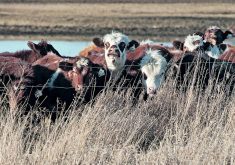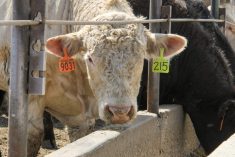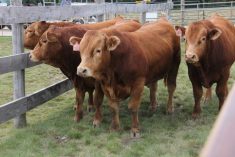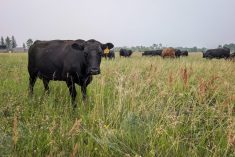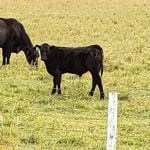The third of four reported on-farm outbreaks of porcine epidemic diarrhea in Alberta so far this year can now be marked as a negative.
The provincial government and hog producer agency Alberta Pork on Monday announced the first of two cases reported Friday was in fact a “false positive.”
Specifically, Alberta Pork said Monday, the investigating lab in the third case “identified the virus in a sample, but pigs at the formerly-suspected affected premise have shown no signs of illness.”
Read Also

Alberta harvest wrapping up: report
Harvest operations advanced to 96 per cent complete in Alberta as of Oct. 7, with only a few late-seeded cereal and canola fields remaining, according to the latest provincial crop report.
False positives, the agency said, are “infrequent but can be expected occasionally in disease investigations, due to the sensitivity and concern for positive results.”
“Investigation into possible explanations around these results is underway,” the province said in a separate statement Monday.
Alberta Pork said it apologized for “any confusion or alarm” resulting from Friday’s notice.
As of now, Alberta Pork said, “we can confirm three outbreaks of PED in Alberta in 2019” so far. Those include the other case reported Friday as well as the cases confirmed Jan. 7 and Feb. 21.
The province and other stakeholders are “monitoring the situation to determine a source for all outbreaks, but none have been found yet,” the agency said.
Any possible connection between the three outbreaks “remains uncertain,” the agency added.
Neither the province nor Alberta Pork have yet said whether Friday’s confirmed case is geographically close to either of the first two.
The February case, however, is “far away” from the January case, Alberta Pork’s quality assurance and production manager Javier Bahamon said Feb. 22 via email.
Alberta’s hog herd, up until January, had managed to avoid any on-farm outbreaks of PED. Almost 250 other on-farm PED outbreaks have been confirmed in Canada since its arrival in early 2014, mostly on hog operations in southern Ontario and southeastern Manitoba.
The PED virus (PEDv) is a coronavirus which, once introduced in a herd, causes vomiting, watery diarrhea and dehydration in infected hogs. Mortality rates run up to 100 per cent in infected nursing-age piglets but are much lower in growing hogs, which generally present with milder diarrhea. There is no known human health risk or food safety risk associated with PED. –– Glacier FarmMedia Network



